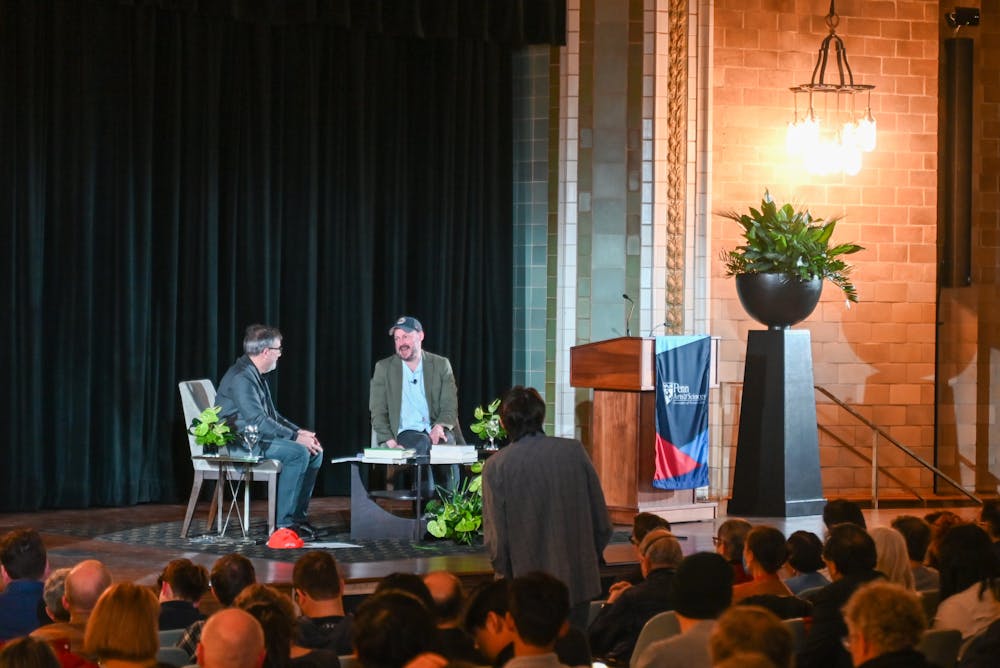
Jeffrey Kallberg introduced Nate Silver at the Stephen A. Levin Family Dean Forum on April 8.
Credit: Hans BodePenn’s College of Arts and Sciences hosted the annual Stephen A. Levin Family Dean’s Forum on Tuesday, featuring bestselling author and data journalist Nate Silver.
The April 8 event — hosted at the Penn Museum’s Harrison Auditorium — was moderated by Kelly Writers House founder and Faculty Director Al Filreis and centered on the data-driven risks of political leadership.
Jeffrey Kallberg, the interim dean of the School of Arts and Sciences, opened the forum by emphasizing the history and current significance of the forum.
“The school established this program in 1984 to celebrate the richness of the arts and sciences at the University of Pennsylvania,” Kallberg said. “To this day, Penn arts and sciences is guided by a philosophy that combines the spirit of innovation and engagement with the world around us.”
Kallberg introduced Silver as a “leading political forecaster whose statistics driven approach is unparalleled in its accuracy to predict election outcomes.”
“Silver first gained national attention during the 2008 presidential election, when he correctly predicted the primary and presidential winner in 49 states,” Kallberg continued. “In 2012, he called 50 of 50 states. He now publishes insights and statistical assessments of cultural phenomena in his Silver Bulletin Substack [newsletter],” he added.
Silver founded FiveThirtyEight in 2008, a data-driven political news site that was eventually acquired by ABC News. He served as the website’s editor-in-chief until May 2023 and also left his role as a special correspondent for ABC News that same year.
Filreis began the conversation by using a deck of playing cards to explain one of the concepts in Silver’s latest novel, “On the Edge: The Art of Risking Everything.”
In the novel, Silver described a distinction between what he calls “the river” — people in Silicon Valley, Las Vegas, and Wall Street, encompassing those who view the world in terms of risk and expected value — and “the village,” which include establishments such as universities.
“One of the things that we in the village can learn from this book is through the profiles of risk-takers that you describe,” Filreis said. “You’re recommending in the context of poker, the fold-or-raise attitude.”
Silver continued with the poker analogy, noting, “You either want to raise or fold because your hand is too weak to call and so usually, the play is to get out.”
“But sometimes, if you raise as a bluff, the combination may be a major flush draw but also sometimes you’re wrong and fold,” he added. “So you have two ways to win, right? And I think that’s a useful strategy for Democrats too.”
The Daily Pennsylvanian is an independent, student-run newspaper. Please consider making a donation to support the coverage that shapes the University. Your generosity ensures a future of strong journalism at Penn.
Donate








